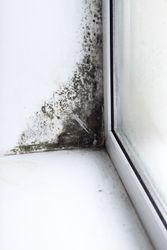3 Steps to Take If Mold Is Found in Your Rental Property
By DryMaxx Ohio

If you are looking for ways to supplement income, consider investing in residential real estate. As a landlord, you’ll have a steady flow of cash from tenants’ rent. To cover expenses and turn a profit, maintaining the building and providing a safe environment are essential. If a renter discovers mold in their unit, the issue must be addressed immediately. Breathing in the spores can cause serious health problems, giving a tenant the right to sue for damages. To ensure mold removal is handled swiftly, follow the below advice.
3 Steps Landlords Should Take When Mold Is Discovered
1. Ask Tenants to Evacuate
From burst pipes to malfunctioning HVAC equipment, there are several causes for mold outbreaks in rental properties. The fungus grows quickly in humid, poorly ventilated environments. If a renter believes there is mold in the unit, perform a walk-through and take pictures of the areas and take notes about what you see.
 If the building has a water intrusion problem, you might need to disclose this information to current and future tenants. Depending on the severity of the issue, ask the tenant to leave while the problem is being investigated or seal off the areas with mold.
If the building has a water intrusion problem, you might need to disclose this information to current and future tenants. Depending on the severity of the issue, ask the tenant to leave while the problem is being investigated or seal off the areas with mold.
2. Call a Mold Removal Specialist
After talking to the tenant, contact a mold removal and remediation provider for an emergency appointment. Mold lands on organic materials, eating through the surfaces. The longer you wait, the greater the likelihood of severe damage to walls, flooring, appliances, and the renter’s personal belongings.
Touching moldy surfaces and breathing in the spores can also cause flu-like symptoms, including fevers, nasal congestion, eye irritation, skin rashes, and respiratory distress. A mold removal technician will clean and disinfect areas with the fungus and determine the reason for the outbreak. If tenant negligence was to blame, consider putting mold clauses in lease agreements to prevent future liability.
3. Schedule Regular Inspections
Even if a renter’s behavior was to blame for the mold outbreak, you should still have a mold remediation company perform regular inspections. Beyond the bathrooms and kitchens of residential units, technicians will check for fungus in other humid areas of the building, including boiler rooms and laundry areas.
Changing the conditions mold needs to grow could also prevent future problems. To improve ventilation, schedule regular HVAC maintenance. To combat humidity, fix broken window frames and have the plumbing system and water-operated equipment regularly inspected for leaks.
If you or a tenant discovers mold in a rental property, the staff at Drymaxx Ohio in Dayton will come to the rescue. With over 25 years of experience, the technicians will get rid of the mold, remove signs of water damage, and provide restoration services to improve the condition of your real estate investment and keep tenants safe. To schedule mold removal in Montgomery County, call (937) 470-3053. Visit the team online to see the additional ways they’ll help during an emergency.
About the Business
Have a question? Ask the experts!
Send your question

